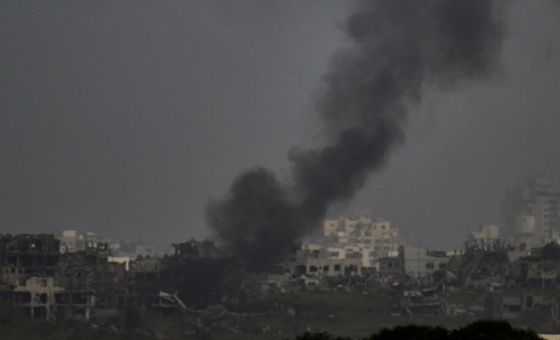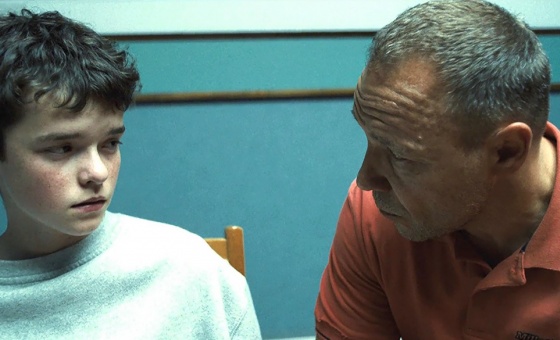This is the last article you can read this month
You can read more article this month
You can read more articles this month
Sorry your limit is up for this month
Reset on:
Please help support the Morning Star by subscribing here
EVERYTHING is blocked, there are no cars and very few people walk the streets. A ghost nation that fights against the coronavirus but which also begins to show the first signs of fatigue: an unprecedented scenario since WW2.
At the time of writing there are 50,418 positive cases of Covid-19 and 6,077 are dead.
No-one can say when the peak of the infections will occur and it is impossible to predict when the situation will return to normality.
By decree the government of Giuseppe Conte asked Italians not to leave their houses, and all schools, shops, restaurants and pubs were also closed except for supermarkets and pharmacies.
The police have already apprehended over 200,000 people and those actually charged with penalties for violating the coronavirus law number at least 10,000. Travelling is also reduced to a minimum: nobody can go from one city to another except to go to work or for “reasons of absolute urgency.”
In theory, all of these restrictions will remain in force until the beginning of April, but it is likely that there will be a prorogation of the measures for many more weeks after.
The worst situation is in Bergamo, a major city in the Lombardy region: the hospital is now close to collapse and places for coronavirus patients are in short supply. It is in Lombardy as a whole where there are the highest number of victims: over 2,500.
A few nights ago the picture of a convoy of military vehicles carrying corpses from the city flashed across the whole country: scenes that seem to come from a war — yet at the moment they are ones of everyday life in nation. In our hour of need, doctors have arrived from China, Cuba and even Venezuela.
“Milan,” the famous writer Silvia Ballestra says, “looks like a ghost town.
“Outside supermarkets there are the rows of people waiting to enter, but most of the people remain locked inside their houses. There is a lot of concern around because the numbers of the infected are growing and this is a huge city.”
And what of the impact that the coronavirus crisis will have on the economy? The government has immediately allocated €25 billion (£23bn) and will probably give even more money in the future, but the prospects are still very difficult — from a financial point of view and from the point of view of many small and medium-sized companies.
When will Italy manage to get out of this situation? “There are two hypotheses,” the researcher Andrea Capocci explains.
“The first is the scenario hypothesised by Imperial College: this wave will pass, but there will be others in the future and therefore the so-called ‘social distancing’ stipulations will need to be repeated.
“The other scenario is the Chinese one: the Chinese-based multinational Alibaba has developed an app that gives a red or a green code to people based on their movements, tracked on smartphones. It would mean losing the right to privacy in favour of freedom of movement during an outbreak.
“The important thing is that these choices are made under public control — which is itself a very difficult situation also because if we are all locked in our houses, it is difficult to have reliable information.”
The political situation in Italy is equally complex: Matteo Salvini's extreme right rules both Lombardy and Veneto and in recent weeks has attacked the government heavily for its handling of the crisis, causing a fight between regional power-bases and the central government.
While the League has more recently called for heavier restrictions from the government, Lombardy’s governor originally claimed it was “little more than the flu” and Salvini called for the government to “reopen everything” at the end of February.
The League's shifting positions come from a desire for attention, unwilling to relinquish propaganda opportunities — even in the face of a huge emergency. Salvini even spoke of overthrowing Conte's government to establish a national government of all parties.
Mr Conte, once a week, now sends messages to the nation announcing new laws, only helping to create confusion in a country already frightened in itself — with the greatest of all fears being the loss of the freedom to move around.
And why is the Italian health system collapsing? Why, every day, are the governors of the regions stating that the beds are running out and that it will not be possible to cure all coronavirus patients?
“In 2015, with a decree, it was decided that in Italy the departments must be almost always full,” says Capocci.
“A choice that exposes us to risks when an unexpected event occurs — we knew we weren't prepared. Health cuts, however, have precise names and surnames: we know that the turnover of doctors, how many retire and how many are hired. It is not a general discussion, we have known all this for a long time.”
Fewer doctors, fewer beds, fewer hospitals in peripheral areas: the coronavirus has revealed all the fragility of Italian healthcare, which, due to a constitutional reforms under the successive Berlusconi governments, mean that since 2000 healthcare has no longer been the responsibility of the state but of the individual regions. This means that from one area to another in Italy there can be huge differences in structures and treatments.
Mr Conte decided to stop all factories “except the basic necessities” only last Saturday night. Previously, millions of workers continued to leave the house and consequently, to expose themselves to the coronavirus.
Recommendations to respect safety distances in the workplace were of little use. The CGIL union has estimated that in Milan alone about 300,000 people a day moved around, despite the lockdown, until the government's further restrictions announced at the weekend.
“There remains a black hole of those who will close up shop in obedience to the rules and the security measures for those who will remain open too,” the Radio Popolare journalist Massimo Alberti says.
“And for those who close, there is the possibility that their companies could pass on to the workers the cost of the closure, through forced holidays. And these holidays will not only mean the loss to the right to rest and relaxation but they are also ‘holidays’ from their wages.
“In short, the real application and effectiveness of these decisions are still to be seen and monitored. Still, the decision to close the factories was made after weeks of strikes, complaints from workers who had been forced to expose themselves to the virus. It is a small victory that has had at least the merit of breaking a deliberate and conscious silence.”
When the coronavirus epidemic was still at the beginning, Confindustria, the association of Italian industrialists, put a lot of pressure on the government to not stop the country and, consequently, consumption.
Unfortunately, its appeal was welcomed by many, in particular by Mayor of Milan Beppe Sala (Democratic Party) who, incredibly, for several days continued to tell people to leave their houses and to continue life as usual, a terrible decision that was only withdrawn when the number of dead and infected infected rose above red-alert levels.
What of the economic crisis that will follow the coronavirus crisis? Minister of Economy Roberto Gualtieri (Democratic Party) continues to study a way not to sink the country. In addition to the investment of €25bn (which should lead to a total revenue of €350bn in theory), the decision of the European Central Bank to suspend the stability pact was welcomed.
The former leader of Rifondazione Comunista Fausto Bertinotti sees this decision as a glimpse of the future:
“The dogmas of an entire economic and social cycle, the 2012 European Fiscal Compact, the 1993 Maastricht Treaty, the EU’s budget policies, have all been skipped and even ‘budget parity’ has been suspended. President of the European Central Bank Christine Lagarde, after moving in line with the prevailing cultures of her previous cycle, which is not that of Draghi, made available resources from the Central Bank. A sort of ‘war Keynesianism’ is being rediscovered: centrality of the state, deficit and great public expectations of state intervention.”
The future is unwritten. Following what has happened in Italy, half the world is deciding to lock down everything and prevent people from leaving their homes. It is not known when this crisis will pass and, above all, it is very difficult to make predictions for what will happen next.
The effect is really similar to that of a world war. Our only certainty is that after the coronavirus crisis, Italy — and not only Italy — will be a very different place from what it was before.
Mario Di Vito is a correspondent for Il Manifesto, the daily communist paper of Italy.









